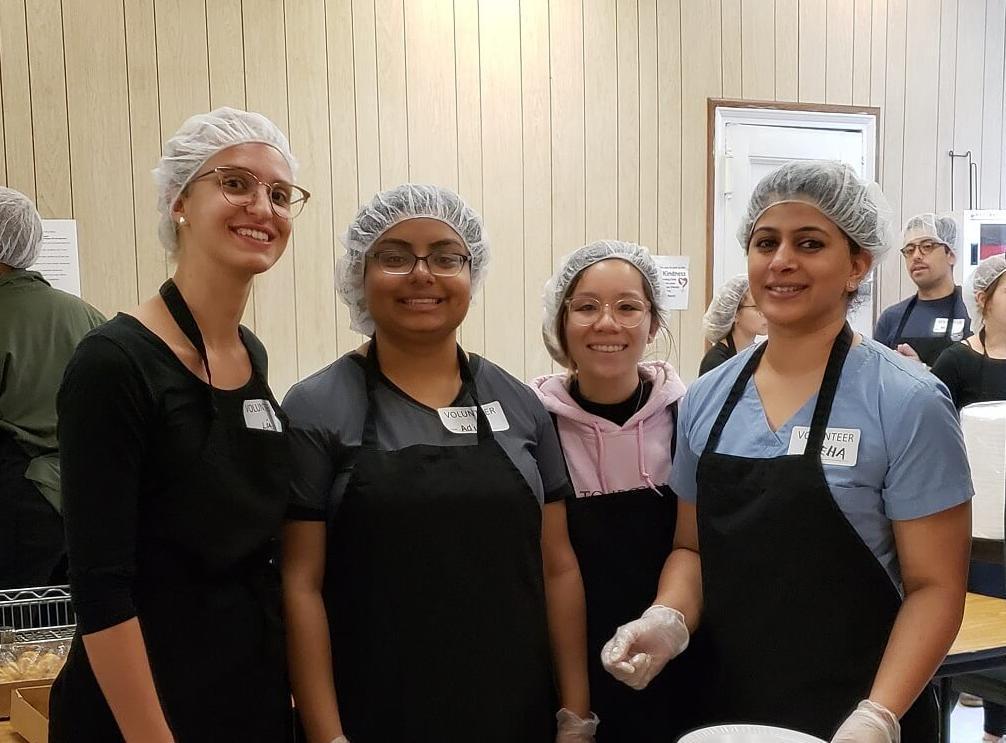Med Students Help the Homeless in NYC
Mission Takes Nine TouroCOM Middletown Students to Volunteer in Soup Kitchen

Nine students and one faculty member from TouroCOM Middletown learned about the challenges the homeless population faces during a mission to New York City.
The trip, organized by the Center for Student Missions, took place over the weekend of October 11. Students volunteered in a soup kitchen on Saturday and helped staff members distribute more than 500 meals to individuals in need. Afterwards, students toured New York City landmarks and reflected on the past and present difficulties the city faces.
“Our students were able to learn how homelessness affects someone’s health or access to medical care and how they can offer better treatment to the homeless population when they become physicians,” said TouroCOM Middletown’s Dr. Stephanie Zeszutek, who accompanied the students.
During a visit to the 9/11 Reflecting Pool students discussed the effects of terrorism on the city. A second stop at NYC’s Grand Central Station included a discussion about human trafficking and a visit to TouroCOM’s Harlem campus enabled students to see the effects of gentrification. In all the stops, students were encouraged to speak to New Yorkers about the city’s homeless population. Each day concluded with a debriefing about the day’s events.
“One person said something that I really appreciated,” recalled trip-organizer OMS II Jermeen El-Zabet, TouroCOM Middletown’s SGA President. “They said that many homeless people don’t want to return to family members’ homes since they don’t feel accepted as fellow human beings there.”
On Sunday, the group had an excursion expedition, where they packed bagged lunches and visited different parts of Brooklyn to meet with members of the homeless population there. One group met a mother and son pair that was homeless.
“The mother shared an experience she had with a doctor and how insensitive the doctor was to their situation,” said El-Zabet. “When I become a physician, I want to be a better doctor to homeless people who come in for treatment.”
“The whole trip was a lesson in privilege for me,” explained OMS II Devyani Ramgobin. “It made me realize how much I take for granted. At the end of the trip, I was very grateful for all of the small things I overlook every day.”
“It was an eye-opening experience for me,” added OMS II Neha Shiveshvarkar. “We were able to educate ourselves and talk to New Yorkers about homelessness, gentrification, and human trafficking. The trip made me lose some of my assumptions about homelessness and think about ways to help this population when I see them as a future physician.”

